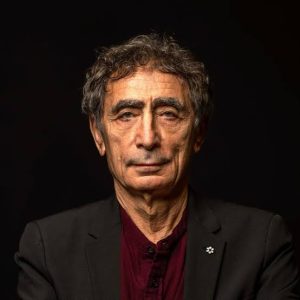


Dr. Gabor Maté is a renowned speaker and bestselling author, recognized for his expertise in addiction, stress, childhood development, and his innovative therapeutic approach, Compassionate Inquiry, with over 20 years of medical experience and numerous accolades including the Order of Canada.
Strong convictions do not necessarily signal a powerful sense of self: very often quite the opposite. Intensely held beliefs may be no more than a person’s unconscious effort to build a sense of self to fill what, underneath, is experienced as a vacuum.
Shame is the deepest of the “negative emotions,” a feeling we will do almost anything to avoid. Unfortunately, our abiding fear of shame impairs our ability to see reality.
Much of what we call personality is not a fixed set of traits, only coping mechanisms a person acquired in childhood.
Not the world, not what’s outside of us, but what we hold inside traps us. We may not be responsible for the world that created our minds, but we can take responsibility for the mind with which we create our world.
We think that children act, whereas what they mostly do is react. Parents who realize this acquire a powerful tool. By noticing their own responses to the child, rather than fixating on the child’s responses to them, they free up tremendous energy for growth.
What we call the personality is often a jumble of genuine traits and adopted coping styles that do not reflect our true self at all but the loss of it.
The research literature has identified three factors that universally lead to stress: uncertainty, the lack of information and the loss of control.
I needed to write, to express myself through written language not only so that others might hear me but so that I could hear myself.
Boredom, rooted in a fundamental discomfort with the self, is one of the least tolerable mental states.
In the real world there is no nature vs. nurture argument, only an infinitely complex and moment-by-moment interaction between genetic and environmental effects.
The difference between passion and addiction is that between a divine spark and a flame that incinerates.
When I am sharply judgmental of any other person, it's because I sense or see reflected in them some aspect of myself that I don't want to acknowledge.
Not every story has a happy ending, ... but the discoveries of science, the teachings of the heart, and the revelations of the soul all assure us that no human being is ever beyond redemption. The possibility of renewal exists so long as life exists. How to support that possibility in others and in ourselves is the ultimate question.
It is impossible to understand addiction without asking what relief the addict finds, or hopes to find, in the drug or the addictive behaviour.